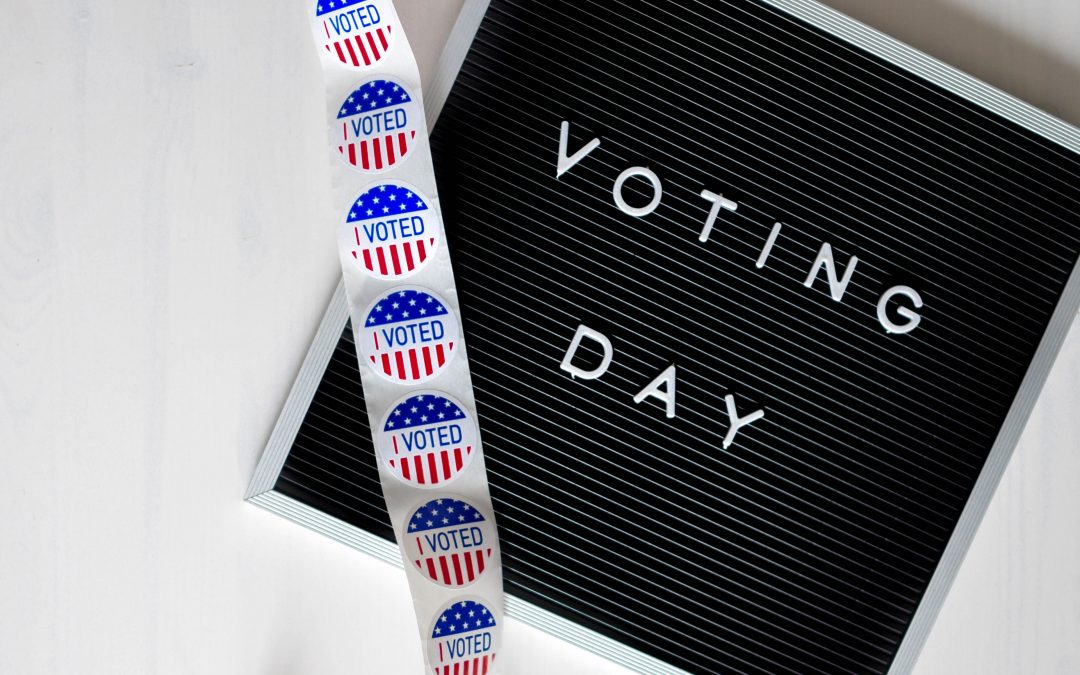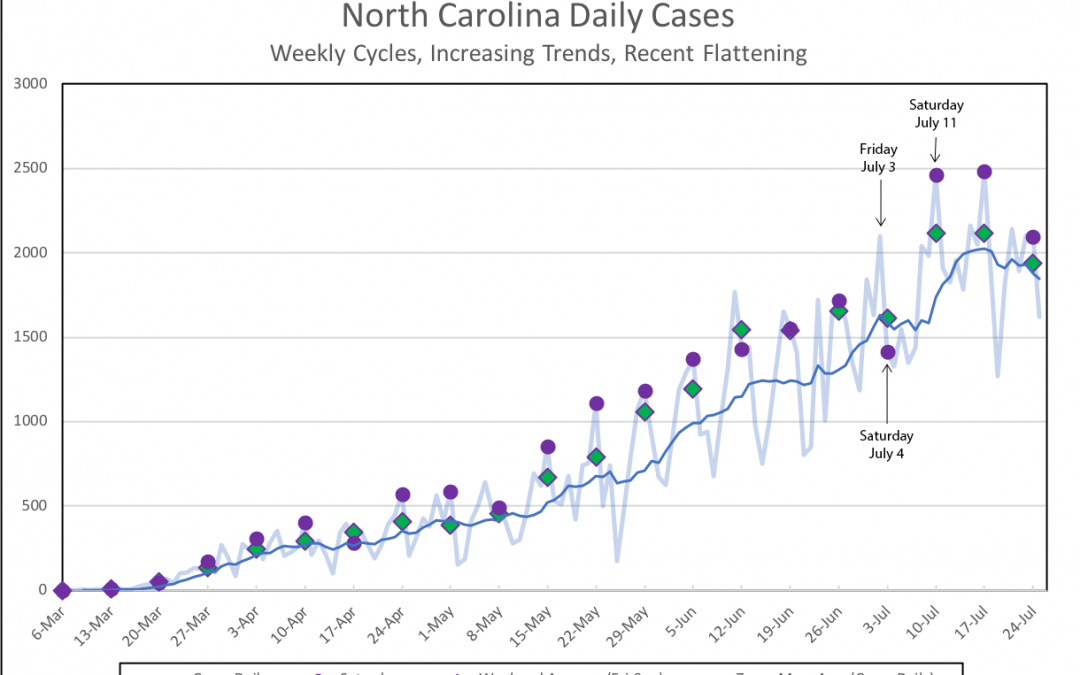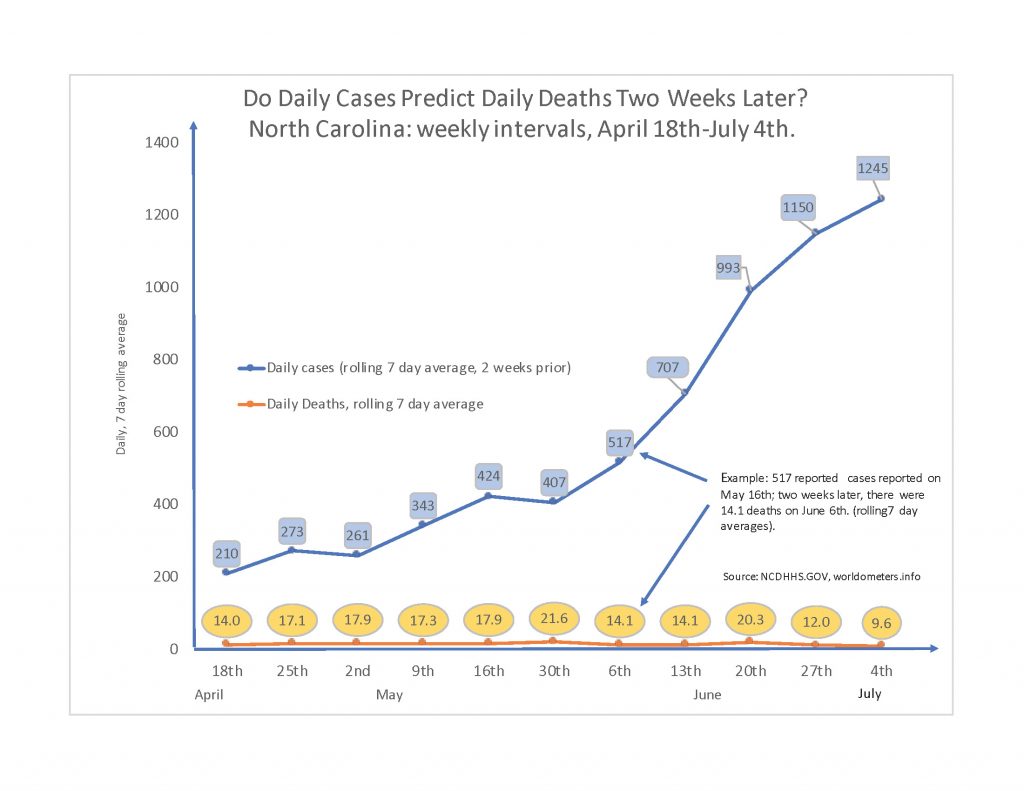
Which political party is better for the economy?
Which political party is better for the economy? Well, from a social science perspective that’s not exactly the right question. But WalletHub asked the question and posted this feature article on the effects of different political parties on stock prices, jobs, growth, and more. In the “Ask the Experts” segment, they sent me four questions and I provided the below responses. The whole feature is recommended, including the responses of 12 other experts who gave responses. Please let me know your thoughts.
Why do you think that the S&P 500 grew more under Democrat Presidents paired with a Republican Congress whereas GDP grew more under a Democratic President paired with a Democratic Congress?
I look at this through the lens of divided government—which is when opposing parties control the presidency and one or both chambers of Congress. Going back to the year 1900 (20 presidents ago), we have had divided government in 54 of those 120 years, or 45% of the time. Research in economics and politics shows that the growth rate of federal government spending is noticeably lower during these times, as compared to periods of unified government when the same party controls both branches of government. However, the effects on equities and GDP growth are less consistent across the literature, and not large to begin with. So, divided government seems to matter more for policy choices than for growth in the economy. Part of what’s going on might be that divided government has become much more the norm in recent decades. Since WWII, voters have chosen divided government 62% of the time and beginning with Reagan a whopping 75% of the time. It seems like markets and voters have come to expect, or maybe prefer, that divided government is the way to go, to some extent even regardless of which party controls the presidency.
Do you think Biden or Trump has the best plan to promote future economic growth?
I think both sides have an obvious interest in overstating the benefits of their respective economic plans. What we must go by is their actual policies once in office. If Trump wins, we can largely expect more of the same, although intending to cement his legacy as opposed to his first term’s eye toward reelection. International trade will slow, but domestic markets will be loosened further. It is a good thing we’re a big country. On the other hand, if Biden wins, we can expect a push toward more tax-and-spend redistribution, as well as a ramping up of economic regulation toward its Obama-era levels. Trade wars will linger but not escalate. In either case, whether Trump or Biden is the next president, he needs to be better prepared for economic shocks that come along—weather, pandemics, geopolitical conflict, asteroids, whatever—or at least give the appearance of being better prepared. And just as important, he needs to avoid making the presidency itself a source of economic shocks. I.e. first do not harm.
Do you believe the Federal government is getting worse or getting better at promoting economic growth, irrespective of party control? Why?
I think we are getting better with our top-down policy instruments. The Fed has been effective at avoiding inflation, and that is despite the tripling of the monetary base following the Great Recession. Turns out, paying interest on excess reserves has become an effective stabilizing force. But promoting growth is a different story. Here we are pushing on strings, not tugging on reins. I think the federal government needs to do a much better job of recognizing and facilitating bottom-up sources of economic growth. In so many places around the country, small businesses and entrepreneurs are being held back by arbitrary rules and unfair advantages to the big guys. Much of that is there because of federal government tinkering of various sorts, and there is a lot of anti-growth meddling at local levels. A president who can lead the nation to scrutinize these unfair obstacles that limit bottom-up growth will make the federal government do better.
In your opinion, will Joe Biden or Donald Trump be better for the economy?
Every president has been a mixed bag on the economy, and this won’t change after the election. If Trump wins, the continued push for deregulation will strengthen markets and build foundations for long-term growth. But the trade wars, Trump’s divisive rhetoric, and his economic favoritism will all close off growth opportunities. If Biden wins, the pressure for higher taxes and redistribution will slow growth, but de-escalating trade wars will revive opportunities abroad. I think it comes down to who would end up surprising us more in veering from their expected course. It could also depend on who would react better to surprises, i.e. shocks that come his way. As me again in a year.
In your opinion, who was the best president in the post-war period?
Presidents get too much blame during downturns and take too much credit for economic booms. But such is the way of things. As a matter of personal preference, I think Bill Clinton did the best relative to expectations coming in. Yet some of his biggest moves—cutting capital gains tax rates, welfare reform—were due to pressure from the Republican Congress. Again, divided government seems to matter. Also, some of Clinton’s most ambitious projects that would have been anti-growth—nationalized health care, much higher income tax rates—weren’t accomplished, so in a sense, his historical record dodged a bullet on those items. Clinton also got lucky, perhaps luckier than most presidents, because the economy happened to be transforming in some highly productive directions during the 1990s, so he had a nice overall wave to ride.
Changing spending priorities when revenues decline: Evidence from North Carolina counties
CSFE Faculty Affiliate Marco Lam has a new study published in Political Economies in the Carolinas under the title “Sticky Expenditures in Local Governments: Evidence from North Carolina Counties.”
The study looks into the spending behavior of North Carolina county governments during the 2005-2014 time-frame. This time period was chosen because the resource allocation changes in response to budgetary shortfalls resulting from the Great Recession provides a unique backdrop to investigate changes in spending behavior.
County-level data was studied because local governments are typically hit hard during periods of financial distress and struggle to maintain expenditure levels in the face of plummeting revenues.
The study finds that for expenditures such as public utilities and transportation systems, county government agents respond similarly to increases and decreases in revenue as corporate agents respond.
For the other governmental activities, such as public safety, human services, economic development, and education the study found a different spending behavior pattern. For instance, average spending on education declined significantly from 2009 to 2010 and by 2014 the average spending on education was still not back up to the 2014 level. This is consistent with the change in average county revenue that declined from 2009 to 2010 and was not back up to the 2008 level by 2014. However, the average spending on public safety never declined over the 2005-2014 period even when average revenues were decreased.
In summary, the study shows government officials shift their spending behaviors and priorities for governmental activities in years when revenue decreases compared to the prior year. As a result, not all governmental activities are impacted the same by a revenue shortfall or decline. In the years following the decline, when the revenues are growing again, these program cuts are not reversed, and the changed spending priorities appear to remain in place.
For the full paper see Lam, M. and D’Angelo, T. (2020) Sticky Expenditures in Local Governments: Evidence from North Carolina Counties. Political Economies in the Carolinas (forthcoming)

There’s something interesting happening with North Carolina’s case numbers
There’s something interesting happening with North Carolina’s new coronavirus cases. The pattern was different in June than it has been so far in July, and we may be seeing the early signs of cases subsiding.


1. First, notice the sharp hi-lo weekly cycle in the data. North Carolina cases tend to peak on weekends, almost always on Saturdays. The purple dots on the chart mark Saturdays. The reason for these cycles has to do with work routines and staffing in the public health system, not the virus itself (more details available). My point here is to show the Saturday pattern exists, because yesterday on July 25 cases might have broken that pattern.
2. Starting at the weekend of May 9, North Carolina set new record high case numbers on nine consecutive weekends, through the weekend of July 11. These consecutive highs are pulling up the seven-day moving average for late May and June. That trajectory has been flat or negative since.
3. Actually the pattern broke trend before July 11, as a look at the July 4 weekend shows. While cases did peak to a new record on Friday, July 3, the only purple dot on the whole chart to fall below trend is July 4. This is likely due to staffing in the public health system over the holiday. But starting with that July 3-5 weekend, the seven-day moving average goes flat for a week, before climbing again for a week, but since around July 17, it has been on a downward slope. Overall, July has ups and downs and a flattening trend. This is very different from the steady climb that late May and June brought.
4. Something interesting is happening with the weekend averages, as well, starting with the July 11 weekend. The numbers stop increasing. In fact, the weekend average case numbers on July 11 and July 18 are identical at 2,117.33. That’s right. Cases were exactly flat during this week in the middle of July, according to the three-day weekend average.
5. Since July 18, cases have not only stopped increasing, they are now showing signs of possibly beginning a downward trajectory. Notice on Sunday, July 19 there were 1,216 new cases, the lowest daily number all month and down to the trendline as of June 30. And with this weekend’s numbers now reported, cases show signs of continuing to slow, with the weekend average as of today down to 1,940 cases.
This is still a lot of cases! Numbers remain very elevated compared to May and June. However, this chart may reveal some signs that the ship is turning. If the coming week brings more of this or better, then a solid downward trend in cases will have developed.
Everyone hopes that the case curve will bend and we can begin loosening restrictions. Unfortunately, nothing in this chart can tell us what will come. But it sure does tell us one thing. The outlook on this fourth Sunday of July is very different than it was back on the fourth Sunday of June.

How Restrictive Are North Carolina’s COVID-19 Policies?
WalletHub released the latest edition of its 50-state ranking on restrictive COVID-19 policies. Many of the variables used in the study are heavily controversial in public discourse, including masking and school opening. Each of the many variables the authors cram into this index are also assigned relative weights according to the authors’ judgments of importance. So, at the end of the day, it’s not entirely clear what North Carolina’s score of 29.44 really means, and how much of that is picking up what the authors think is important.
That being said, it’s noteworthy that North Carolina’s ranking on this metric has steadily declined, from a ranking in the mid-20s in early May to 45 out of the 50 states in this week’s report. The index is downgrading North Carolina for delaying Phase 3 and for other suppression measures. Again, these issues are debatable. What may look to one person like an appropriately strong response to fighting the virus may instead appear to another person as too blunt and overreaching a response. The WalletHub ranking is just one piece of information in this public discussion.
More broadly, we hope that the policy is based on the best evidence available. According to DHHS data, the case trends in recent days may be showing early signs of the beginning of a slow down in case numbers. As I wrote here on June 5, in North Carolina confirmed case numbers routinely cycle each week between peaks on Saturdays and troughs around Tuesdays. This has been the pattern with a bit of variation every week going back to early May. Every Saturday starting May 16, North Carolina set new daily highs for case numbers, and continued doing so for 10 weeks in a row!
Until today. With 2,097 new confirmed cases, the number fell several hundred cases short of the state’s record daily high. Today’s number is about the same as we had over three weeks ago on July 3 with 2,099 cases. And the seven-day moving average of daily cases is almost flat for the past two weeks and some change going back to about July 9. Let’s hope these numbers are the early signs of a slow down in the pandemic.
READ MORE: Edward Lopez spoke recently with WLOS News 13’s Taylor Young for a story on the report by WalletHub. Read the full story.

WNC breweries seeing impact of can shortage
A perfect storm is brewing for beer producers in the form of short supply vs. high demand when it comes to packaging their products.
Manufacturers of aluminum cans used for canning beer and soft drinks are in overdrive trying to keep pace with increased demand. A combination of factors has sent the demand for cans soaring. A major factor is increased beverage consumption at home, rather than at restaurants which are causing a back up for breweries.
In the past, a larger portion of beer and beverage sales went into kegs for distribution, now with changes forced upon the supply chain by COVID-19, breweries are having to find ways to quickly adapt to the changing market.
In a recent story on WMYA MyTV40, Center for the Study of Free Enterprise Director Edward Lopez said that although aluminum is not in short supply, the can manufacturing process has been impacted, causing the supply-chain backup.
“Markets are trying to re-allocate supplies of goods and services where they’re in the highest demand. So, just like we saw with previous shortages in the pandemic, this one’s likely to be a short-run disruption.”
Lopez said with demand up, aluminum prices are up. He said that puts pressure on breweries to decide which beers to can and pressures consumers, who may make other choices if prices of canned beverages increase.
Waynesville’s Frog Level Brewing is one of those feeling the pinch, with can supplies taking about twice as long as usual to arrive.
Read the full story here: http://my40.tv/news/local/aluminum-can-shortage-due-to-covid-impacting-local-breweries

Why are recoveries increasing in the Sunbelt, especially in North Carolina?
In a new study as part of CSFE’s COVID-19 research initiative, with co-authors Stephen Miller and Craig Richardson, we find that surging cases in Sunbelt states are not leading to surging hospitalizations or deaths. If anything, the growth rate of deaths is declining.
One possible reason can be detected in reported recoveries. All but three of our study’s 10 comparison states provide data on recoveries. And while reporting criteria do vary by state, comparing the ratios of recoveries to deaths can still shed some light on why this round might be different. In some states, a recovery is counted as a hospital discharge. Other states count an infected person as recovered if they are symptom-free for a period of time or have two consecutive negative tests. Texas clearly measures recoveries differently, where an infected person is “recovered” 32 days after hospitalization if the patient survived or 14 days after being recorded as a case if hospitalization was not required. In this sense, recoveries are a conservative metric because many survivors are not tracked or recorded, which could artificially inflate the presumed number of active cases. Figure 5 from the new study is reproduced here; it reports the ratio of recoveries to deaths for six of our comparison states starting in late March through late June.

As Figure 5 shows, the ratio of recoveries to deaths portrays an improving trend in North Carolina. By the end of June, the state’s ratio of reported recoveries to reported deaths was 12.6, meaning that for every 100 hospitalizations an average of 7.4 cases would lead to deaths while the remaining 92.6 cases would become recoveries. The good news for North Carolina is, this ratio has been steadily increasing throughout the duration of available data, beginning about May 10.
Figure 5 also shows North Carolina in a relatively good position compared to all but one of the other states. New Jersey and New York flat-lined early on, and have shown no improvement in recoveries to deaths. Meanwhile, North Carolina is not only improving but by the end of June has more than five times the recovery rate as New York / New Jersey.
We want to stress that this is relatively good news. Every increase in cases warrants the utmost concern. But it is important to understand where progress is being made, and why. If we can better understand why hospitalizations and especially deaths are not following new cases in the same large numbers as they did earlier in the pandemic, perhaps we can do more in those directions, to improve the situation even more, and eventually to bring all these numbers down as close to zero as humanly possible.
Do spikes in COVID-19 cases lead to spikes in deaths?
One crucial question is whether spikes in new daily cases are followed by later spikes in hospitalizations and deaths. Many have expressed grave concern about this possibility. Former FDA commissioner Scott Gottlieb told Face the Nation last Sunday, “We’re right back where we were at the peak of the epidemic during the New York outbreak.” State and Buncombe County officials have followed suit, yesterday describing recent spikes in confirmed cases as “rising at an alarming rate.”
In a forthcoming CSFE study, co-authored with economists Craig Richardson and Stephen Miller, we compare five hot zone states from Round 1 (Massachusetts, Michigan, New Jersey, New York, and Pennsylvania) to five counterpart states in Round 2 (Arizona, Florida, Georgia, North Carolina, and Texas). We find no correlation between deaths on any given day and lagged measures of cases. Furthermore, even though confirmed cases spiked for over a month in both rounds, the trends in Round 2 states on hospitalizations, deaths, and recoveries are markedly different from those in Round 1 states. We find that measured on a seven-day moving average, daily Deaths are not increasing in Round 2 states, and if anything they are decreasing. Meanwhile, hospitalizations have been increasing over this period in Round 2 states, but gradually so, and they still remain at relatively low levels compared to Round 1 states.
Figure 3 from the forthcoming study, focusing on North Carolina, is reproduced below. This chart reports the seven-day moving average of new daily cases on a benchmark lag period of 14 days. There seems to be no connection between deaths on any given day and cases two weeks prior. For example, compare the two dates May 2nd and June 6th. On May 2nd, the seven-day moving average of deaths came in at 17.9, and this corresponded to 261 new cases two weeks prior. More than a month later on June 6th, deaths had declined to 14 even though corresponding cases two weeks prior had spiked to 517. Over this interval, the empirical relationship is actually negative. By June 20th, confirmed cases two weeks prior had skyrocketed to 989, yet thankfully the increase in deaths was far less than proportional, from 14 to 21 on the seven-day moving average. By June 27th, cases two weeks prior had spiked to 1,161, yet deaths had thankfully decreased to 12. Again, spikes in cases may be cause for concern, but that need not include the concern that deaths will soon spike later. If anything, the relationship could be negative.

As for hospitalizations, Round 2 states show a gradual and relatively predictable increase over time, not the rapid and chaotic increase, followed by a plummet, that Round 1 states experienced. For context, Figure 4 from the forthcoming study compares daily hospitalizations for North Carolina (population is 10.5 million) and New Jersey (8.9 million). As one can easily see, the two profiles are entirely different. New Jersey, saw hospitalizations rise dramatically to over 8,000 on a single day in mid-April, before declining gradually since then. By comparison, North Carolina has seen only the slightest gradual upward drift in hospitalizations. Even at the end of June, New Jersey still had a more elevated number of current hospitalizations. If ever there were evidence of flattening the curve—i.e., keeping it flat in the first place—it could be North Carolina’s trend line of hospitalizations.


Local businesses and chains are feeling the effects of economic rebalancing
Several local and chain businesses in Western North Carolina have announced permanent closures in recent weeks as the economy continues to struggle with the impact of the pandemic.
In its recent coverage, WLOS News 13 reached out to Center For the Study of Free Enterprise Director Edward Lopez for insight into what these closures mean, now and in the long term.
“I think what we’re seeing is just this rebalancing of the economy as we recover from the pandemic,” Western Carolina University economics professor Edward Lopez said.
“I think your older restaurant brands are scaling back because they just don’t have that sustainable long tail of demand to see them through these major hits they’re taking,” he said.
WLOS noted that patrons of several restaurants slated to close expressed their dismay over the announcements in various online forums.
Lopez, however, noted that this situation differs from the Great Recession because the effects are mostly seen in businesses already on rocky financial ground.
“This round is different because it’s the economically-vulnerable that are getting hit. Last round, it was the over-leveraged that were getting hit,” Lopez said.
Read the full coverage here:
https://wlos.com/news/local/4-asheville-chain-restaurants-close-for-good
Center For the Study of Free Enterprise will continue to examine the economic impact as the pandemic unfolds. Watch this space for our ongoing research.

Dr. Edward Lopez on the impact of COVID-19 on WNC small businesses
Small businesses are bearing the brunt of the economic shut-down as a result of COVID-19. In a recent interview on WLOS News 13, Center for the Study of Free Enterprise Director Dr. Edward Lopez spoke about the conditions affecting small business owners.
Recent reports such as this one by McKinsey Institute have focused attention on COVID-19’s impact on small business.
The authors combine four prominent surveys of business sentiment among the nation’s small and medium enterprises. Because these are each long-running surveys, we can compare results before COVID and since, sector by sector, and in this way get a feel for the still-emerging impact.
The small businesses getting pinched the hardest are those with some combination of: 1) they were already in poor condition or close to it before the pandemic; 2) they rely on foot traffic especially retail, accommodations, and food services; 3) they have limited options for adapting to changing consumer patterns and government restrictions.
McKinsey Institute estimates that 1.7 million small businesses employing 20 million people are highly vulnerable and at risk for permanent closure due to the pandemic.
Yet not all sectors are being hit hard, and some are relatively unaffected. The McKinsey study shows things to be relatively stable and potentially improving in sectors like finance and insurance, professional services, construction, and to some extent also real estate, administrative support, and manufacturing jobs.
That 1.7 million estimate does not account for the temporary safety net provided by the Paycheck Protection Program, either, troubled as it has been.
So the outlook on small business in the short term is mixed. There will be lots of pain with every small business closure that happens as a result of the pandemic and lockdowns. Yet small businesses in America are also resilient. And small business has a way of re-emerging and adapting itself after a crisis, and shaping itself to changing lifestyles. So the outlook on small business in the long term can be positive.
People might not know it, but in Western North Carolina manufacturing accounts for about 20 percent of the economy’s production. And professional services employment had been on a positive trend before the pandemic. We also have a long-term advantage insofar as consumer habits are shifting permanently toward more outdoor activities.
You can check out detailed info about the WNC economy at our North Carolina Data Dashboard. Soon we will be sharing results of our studies as part of our COVID-19 Research Initiative, including a study on the county-by-industry impact of COVID and Governor Cooper’s executive orders.
What does a dip in positive cases mean for North Carolina?
Confirmed cases have plummeted in North Carolina in the past four days, down from a record high of 1,768 on 6/12 to well below trend at 751 today 6/16. Does this mean the actual threat of the disease is also plummeting? It could instead reflect that testing also declined sharply over that interval, from a high of 21,822 on 6/12 to 12,942 today.
I made this same point in the opposite direction almost two weeks ago (see my post here). Taking a look at case trends in May and early June up to that time, it is very interesting that North Carolina experienced five consecutive record high case numbers on five consecutive Saturdays starting May 16. Why Saturdays?
Well, turns out, North Carolina had spikes in completed tests on five the preceding Thursdays and Fridays prior. That late-week pattern of more tests and more cases became even bigger starting with Saturday May 30th spike. The two time series dip and spike almost in lock step.
Here we are on a Tuesday, however, and we’ve had a 40% drop in testing and a 60% drop in cases in just four days. Does this mean the threat of coronavirus is down by the same amount? Almost certainly not. Instead, it means that the factors determining testing are down. Some of those factors do correlate with the seriousness of the disease, because when more people are symptomatic then more people will be getting tested.
However, so much of the variation in test and case numbers fails to measure variation in the actual threat of the disease, but instead picks up lots of variation in human behavior and official decisions. For example, the state’s testing guidelines were initially written when test supplies were pretty tight. As more became available, the guidelines expanded. As weeks went on, more recently the guidelines were expanded again to include testing on marginalized populations disproportionately harmed by the virus, regardless of symptoms.
There is much more to the story that tells the tale of testing. For the moment, it’s important to recognize that the sharp dip in cases in recent days has been caused at least in part by the sharp dip in testing that preceded it.
To their credit, the Governor and NCDHHS place more weight on hospitalizations than they do on cases. However, there is room for improvement because with last weekend’s case spike, Newsweek quoted Governor Cooper as saying, “These [spiking case] numbers show the disease is spreading, and that more people need hospital care.” Meanwhile hospitalizations are almost level between 6/12 and 6/16.
If the pattern holds, expect testing and cases to spike again late this week, followed by alarming headlines, followed by officials having to gently talk it down and focus the public’s attention instead on the counts that matter more, namely hospitalizations and fatalities.
